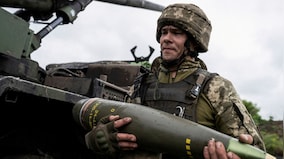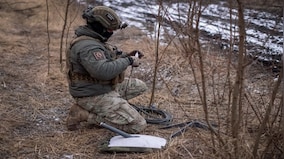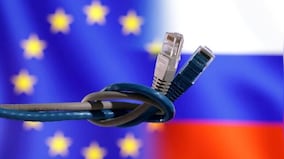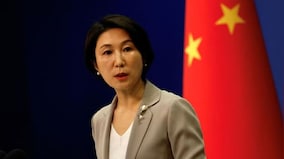Russia is on the brink of implementing its most significant tax reform in 25 years, driven primarily by the financial strain of its ongoing war in Ukraine.
The proposed changes, including a progressive income tax system targeting the wealthy and an increase in corporate tax rates, aim to bolster the state’s coffers amidst rising defence expenditures and a weakening economy.
The proposals were initially put forward by Russian President Vladimir Putin during his campaign for re-election in March.
What does the new tax regime say?
Putin, in a marked shift from his earlier flat tax policies, has introduced a progressive income tax system. Previously, in 2001, Putin had simplified Russia’s complex tax regime by instituting a flat tax rate of 13 per cent, a move that successfully increased revenues and his popularity. However, the financial demands of the war in Ukraine have necessitated a rethink.
Under the new proposal, the current tax rate of 13 per cent for those earning less than five million rubles ($55,850) annually remains unchanged, but higher earners will face increased rates:
Annual incomes from 2.4 million to five million rubles ($27,000-$56,000) will be taxed at 15 per cent.
Incomes between five and 20 million rubles ($55,850-$223,400) will be taxed at 18 per cent.
Incomes between 20 and 50 million rubles ($223,400-$560,000) will be taxed at 20 per cent.
Incomes exceeding 50 million rubles ($560,000) will be taxed at 22 per cent.
This new tax regime is expected to generate 2.6 trillion rubles ($29 billion) in additional budget revenues annually. According to Finance Minister Anton Siluanov, “The changes are aimed at building a fair and balanced tax system. The additional funds will bolster Russia’s economic well-being.”
What is the effect on corporate tax?
The corporate tax rate will rise from 20 per cent to 25 per cent, projected to add 1.6 trillion rubles ($18 billion) to the budget annually. The Finance Ministry claims this increase is feasible due to the growing share of profitable companies in the economy.
Speaking to AFP, analysts at Tinkoff Bank suggest that while this may exert pressure on the stock market by reducing future dividends and capitalisation across various sectors, it could have a positive effect on bond markets by helping to manage the state budget deficit without significantly increasing inflation.
Russia’s soaring defence expenditure
Russia’s defence spending has surpassed 8 per cent of GDP, consuming nearly a third of the state budget this year. This surge in military expenditure, driven by the protracted conflict in Ukraine and the resultant economic sanctions, has necessitated urgent fiscal measures.
The Kremlin can no longer rely on oil and gas revenues to the extent it once did, as lucrative energy sales to Europe have plummeted.
Also Read: The perils of toeing West’s narrative on Russia
Nick Trickett, a senior analyst at S&P Global Commodity Insights, told AFP, “What really supercharged it was, frankly, financing the war. The degree of labor shortages that became apparent from 2022 onwards because of mobilisation and so on has supercharged wage growth.” He added, “People’s wages going up means there’s more flexibility to tax them more without there being a lot of blowback.”
Budget deficits in Russia
Russia has been grappling with budget deficits, recording a combined shortfall of about 6.5 trillion rubles ($73 billion) in 2022 and 2023. This year, the government has budgeted for a deficit of 1.6 trillion rubles ($18 billion), equivalent to about 0.9 per cent of GDP. The loss of energy revenues, coupled with surging wages and high inflation (7.8 per cent year-on-year as of April), has further strained the economy.
Siluanov emphasised the necessity of the tax reforms, stating, “The additional funds will bolster Russia’s economic well-being.” He also highlighted the social aspect, indicating that the tax hikes would help fund social spending, including state child support and Russia’s pension fund.
How has the tax-payer reacted?
The official rationale behind the tax reforms is to reduce inequality and foster regional development. However, the proposed changes have met with skepticism on the streets of Moscow. Business groups, while urging lawmakers to engage in measured discussions, acknowledge the inevitability of the reforms given the pressing financial needs.
Also Read: Putin is ready to halt war in Ukraine with negotiated ceasefire, says report
Alexander Kalinin, head of the business association Opora, told local Russia media, “It’s important that all changes take effect from 1 January next year. So that businesses have the opportunity not only to participate in the discussion of amendments to the proposed bill but also to calmly adjust their business plans and take this into account in their planning for the next few years.”
When will the tax reform be passed?
Lawmakers in the State Duma, Russia’s lower house, are determined to pass the tax reforms by the end of the current parliamentary session, which has been extended to 5 August. This extension suggests a potential for protracted debate, although the political consensus around the need for increased revenues implies the reforms are likely to pass.
Also Read: As Vladimir Putin starts 5th term, here’s how he reshaped Russia & seeks to create new world order
Analyst Trickett pointed out the limited political space for business pushback, stating, “The political space for business to push back is basically nil. Everyone knows if the deficit gets too big, it’s going to be really inflationary.”
With inputs from agencies










)
)
)
)